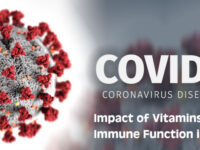Many popular diets advise against eating anything white. Foods like pasta, rice, white bread, sugar and other white foods are off limits. However, cauliflower is a white food you can feel good about eating. This nonstarchy vegetable is a cruciferous vegetable like cabbage and broccoli. High intake of cruciferous vegetables is associated with a lower risk of some cancers. They contain vitamins, minerals, and phytonutrients, or plant nutrients, that may help neutralize damaging toxins.
1. Provides High Levels of Vitamins and Minerals (especially important Vitamin C and Vitamin K)
In addition to Vitamin C and other antioxidants, cauliflower is also a good source of Vitamin K. Vitamin K is a fat soluble vitamin, meaning it is absorbed in the intestines along with fat, so this is one reason why eating cauliflower along with a source of healthy fat (like coconut oil for example) is important.
2. Reduces Cancer Risk
Numerous studies have shown that there is a strong tie between someone’s diet and their risk for developing cancer. Studies demonstrate that cauliflower is especially useful for preventing breast cancer in addition to colon, liver, lung, and stomach cancers.
3. Boost Heart Health
Sulforaphane in cauliflower and other cruciferous vegetables has been found to significantly improve blood pressure and kidney function.4 Scientists believe sulforaphane’s benefits are related to improved DNA methylation, which is crucial for normal cellular function and proper gene expression, especially in the easily damaged inner lining of the arteries known as the endothelium.
4. Boost Your Brain Health
Cauliflower is a good source of choline, a B vitamin known for its role in brain development. Choline intake during pregnancy “super-charged” the brain activity of animals in utero, indicating that it may boost cognitive function, and improve learning and memory. It may even diminish age-related memory decline and your brain’s vulnerability to toxins during childhood, as well as conferring protection later in life.
5. Antioxidation
Aside from these antioxidants above, cauliflower also contains carotenoids, such as beta-carotene, and phytonutrients that include kaempferol, ferulic acid, cinnamic acid and caffeic acid. With these antioxidants, you can be certain that eating cauliflower regularly will help protect you from free radical damage and reduce your risk for diseases caused by oxidative stress, such as cardiovascular diseases and cancer.3. Detoxification
6) Digestive Support
A cup of boiled cauliflower delivers about 3.35 g of dietary fiber, which helps clean your digestive system and gets rid of unnecessary substances. Additionally, a substance called glucoraphin present in cauliflower appears to have a protective effect on your stomach lining. With glucoraphin, your stomach is not prone to the bacterium helicobacter pylori, thereby reducing your risk for stomach ulcer and cancer.
7. Fights Inflammation
Inflammation is at the heart of nearly all chronic diseases that we are faced with so commonly today. Cauliflower is rich in antioxidants and anti-inflammatory compounds which lower oxidative stress and the presence of free-radicals in our body.
8. Aids in Weight Loss
Cauliflower is extremely low in calories (only 29 calories per cup), has virtually zero grams of fat, very low levels of carbs and sugar, and yet is high in volume and filling fiber. This makes it an excellent choice for those looking to lose weight, since you can consume large amounts of cauliflower and fill up, without over-consuming calories, fat, sugar, or carbs.
9. Helps Balance Hormones
Consuming a diet rich in whole foods and antioxidant-filled vegetables like cauliflower has been shown to help balance hormones partially by reducing unhealthy levels of estrogen. High estrogen foods can be harmful to health when they begin destroying the vulnerable hormonal balance that many people struggle to maintain.
10. Preserves Eye Health
The sulforaphane found in cauliflower has been shown to protect the vulnerable tissues of the retinal area from oxidative stress that can result in blindness, cataracts, macular degeneration, and more.
Sources
http://articles.mercola.com/sites/articles/archive/2014/02/22/cauliflower-health-benefits.aspx
http://draxe.com/cauliflower/
http://www.healthyfoodhouse.com
http://www.livestrong.com/article/410151-the-health-benefits-of-cauliflower/














